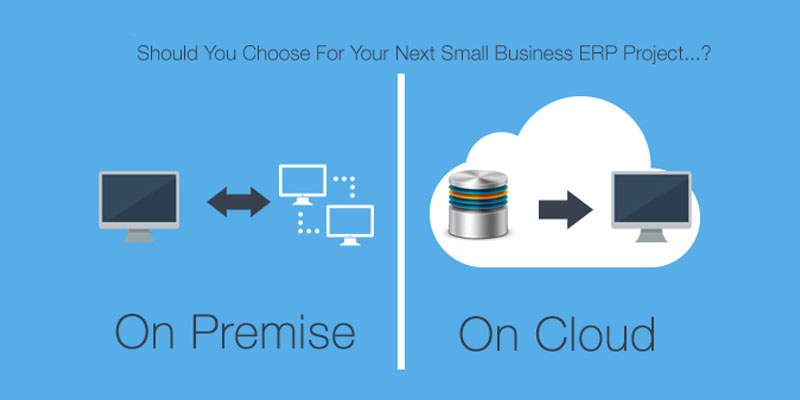If you are a business that is in need of an ERP than there are a lot many factors that influence your decision making. One of them is to choose either an on premise solution or a cloud based solution before you narrow down on an ERP service provider. Cloud ERPs are also known as SAAS or software as a service and mean exactly what they spell viz. sold as a service by the vendor. The service provider manages the data centrally and it is stored on the cloud. While on the flip side, on premise means installing the ERP systems locally on the server of the organization or company. The IT staff can manage the on premise system while using their own hardware.
To decide whether to go with a cloud based ERP or an on premise ERP isn’t an easy decision to make. Well, let us take a quick sneak peek into the pros and cons of each of the systems.
Tailoring
Customization is easier with on premise ERP’s as compared to cloud is easy. Though, one point needs to be kept in mind is the more detailed customization you do, the more difficult it gets to upgrade in the future and expensive as well. Even going live gets delayed many a times.
Efficiency and Access
When it comes to performance, Cloud ERP’s win the bout. Their network availability is also better as compare to on premise ERP systems. There are designed for seamless availability and network performance and the best part is their ability to adjust to undesirable circumstances to meet the needs.
Security
One of the most vital part of an ERP is security factor. The data of every organization is of critical importance and its safety is of highest value. In this arena, Cloud ERP’s again take the pie from on premise ERP. The access authentication rules are very strict on data access from servers where the storage of data is done. Many of the vendors follow a triple tier security system and only validated users can access the data after the check through three layers of security. Security on local servers can be easily compromised and hence security wise are not as good.
Cost
When it comes to the bottom-line, ERP on premise systems are more expensive than cloud based ERP systems. When it comes to cloud ERP the working requirement is only an internet connection and a software while in case of on premise there is a long list of prerequisites like purchasing, installing, managing software and training the staff or hiring if required.
Upgrade
Change is the only constant they say and the ERP domain is evolving day by day. So you need to keep upgrading to match with the changing requirement and needs. In this area, on premise lags behind because it’s difficult to manage upgrades with ease in on premise ERP. Hence, you can see that those organizations who have on premise ERP are mostly using the old school ERPS in the present day
Well, as you see Cloud based systems have fared well when it comes to comparison part but it actually differs from organization to organization and their individual requirements when it is about choosing any one of the ERP systems.
CAMPUSMEDICINEis a web based application. It establishes a common and continuous platform between 4 stakeholders: Management, Faculty, Parents, and Students.
#campusmedicine #campus #medicine #campusmedicineblogs

